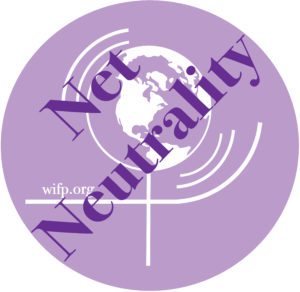Karma Abuayyash: Gender Gap in Palestinian Society
I am Power Hungry Woman: The Gender Gap in Palestinian Society
By: Karma Abuayyash, WIFP staff
All across the world, women have long fought for equality, recognition, and a presence in the political arena. In times of war and conflict these struggles became even more prominent, a situation very recognizable by the Palestinian women. Both the patriarchal nature of Arab society and the restrictions enforced by the Israeli occupation shackle Palestinian women in their fight for societal and political freedom. However, since the beginning of the twenty-first century, Palestinian women have been working to make their collective voice heard and reduce the gender gap within their society. Looking back at the first Civil Uprising in 1987, the seed of a feminist movement had begun to develop, which enforced social change. As women became more active and politicized, the feminist movement gained momentum; the fight was not only against the occupation, but also against the restrictive norms of society. Women undertook prominent roles in the first civil uprising, standing shoulder to shoulder with their male counterparts, which thrust the subjects of gender equality and women’s rights into the spotlight.
Nowadays, the percentage of women participants in the political arena is diminishing. Although this might appear to be a negative phenomenon, as Palestinian women are currently less active in the actual fight against the occupation – in comparison to the first civil uprising -they have been taking more significant roles in other mediums such as journalism and media. During the last couple of years, the number of women majoring in journalism and media in the Palestinian universities has been increasing. For example, in Birzeit University – one of the leading universities in Palestine- the ratio of female students to male students is 4:1. One of the main reasons might be the low wage a media graduate gets when hired.
However, due to the patriarchal nature of Palestinian and wider Arab culture, which views women as less capable of both journalism and politics, women tend to wait in line for years to get a job as a journalist. Although there have been many leaps forward, the disparity between the sexes is still clear. While tradition may be good for social cohesion, it can have a limiting effect on progress and prosperity in Palestinian society. One example of such gender discrimination by the Palestinian media channels is their tendency to discriminate between the two sexes when vacancies open, the majority of the media channels and outlets in Palestine hire male applicants instead of female applicants regardless of the females’ superior skill sets, knowledge or experience.
In conclusion, Palestinian women have to break free from their internalized misogyny established by patriarchal social constructs and realize their inner power. These women are just as equal and qualified as any successful male activist or journalist. Madhulika Sikka – the Executive Editor for NPR News- emphasized the actions Arab women should take in their own societies when she was asked to voice her opinions on this matter on the panel of “Closing Journalism’s Gender Gap: A Forum on Women and Leadership” that was hosted by Poynter and the National Press Club Journalism Institute. The idea that women are inferior to men in patriarchal societies has to change, and this change will only come from within.
 The Women’s Institute for Freedom of the Press
The Women’s Institute for Freedom of the Press
